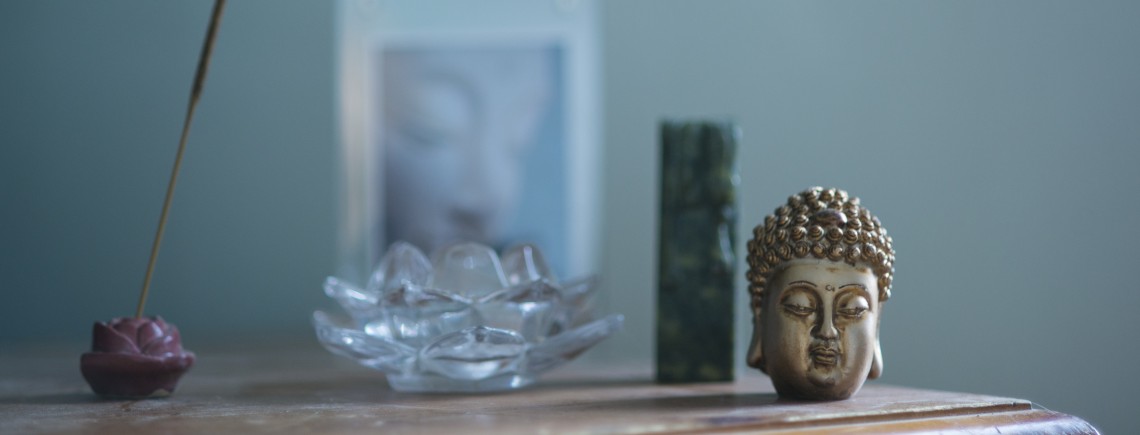BLOG
Confessions from the Cushion: The Reluctant Meditator
By Elizabeth EwanchukI hate meditating. Okay, not always. But sometimes. On those days, I drag my heels to get to my cushion and once there, I find myself resenting it. So why on earth do I continue to do it? How can I teach meditation to my clients when I have conflicted feelings about my own practice?
The effects of meditation can be powerful, enriching your life in ways you might not imagine. There are, however, a host of misconceptions about the practice, which can leave you confused and frustrated. Whether you’re an experienced or new meditator, these potential hurdles can be a detriment to meditation’s many benefits:
Unrealistic Expectations
We’re inundated with studies that boast the health benefits of meditation as a panacea for all that ails us. Then there are those who promote it as a way to become a “better”person.
Meditation is a highly personal activity. Take the time to figure out why you’re drawn to it. Is it to quell inflammation? Lower blood pressure? Become less reactive? Connect with something outside yourself? Jot down the reasons and post the note in an area where you’ll see it often.
Not Enough Time
A common misconception is that meditation requires a lot of time. In fact, you’ll reap its benefits by practicing consistently for as little as five minutes a day. Think of it this way: In the time it takes to read this blog, you could complete your daily practice.
To make a habit of meditation, find a time of day that makes sense for you. I practice first thing in the morning, before the pressures and deadlines of the upcoming day crash in on me or I get distracted by yet another cute cat video. It sets the tone for the rest of my day and I feel great knowing that I’ve made self-care a priority.
The optimal time may be different for you. Experiment a bit. Then commit to it.
Boredom
Yup, meditation can be pretty dull. Part of the problem lies with the notion that meditation should be all rainbows and unicorns. While you may experience periods of bliss, for the most part it will feel like you’re doing a whole lot of nothing. Ah, but the magic of meditation happens subtly below the surface.
This is where having realistic expectations can help. When you’re clear about why you’re meditating, it will be easier to deal with the monotony, so review your list of goals.
Busy Brain Syndrome
If boredom is the biggest challenge of meditating, a wandering mind comes a close second. You may find yourself creating To-Do lists or ruminating over an argument. When this happens (and it will), gently guide yourself back to your practice, whether that’s observing your breath, body sensations, reciting a mantra or whatever your focus is.
You might feel like your mind wanders so much that you’re not actually meditating. Remember, though, that meditation is the act of continuously bringing yourself back to your focal point, anchoring yourself to the present moment.
It’s too“Spiritual”
In a broad sense, any activity that connects you to your body and your breath can be considered a spiritual practice, as your physicality is a doorway to ground you in the here and now.
Some styles of meditation are indeed tethered to religious tenets, but not all are. If you would prefer something more secular, do a bit of research and find one that’s a fit for you. Many hospitals and community groups offer courses in mindfulness, which approaches meditation practically, stripped of any dogma.
Mastering meditation requires time and patience (and a healthy dose of lightheartedness). Try out these suggestions for a month and see what kind of shifts start to happen in your life.
About Elizabeth Ewanchuk:
As a Sports Injury Specialist, Elizabeth brings together traditional healing methods with modern science to help athletes reach peak performance. In her spare time, Elizabeth loves climbing rocks and trees, feeling the sun’s warmth on her face and squishing soil between her toes. When she’s not climbing, cycling or getting bendy on her yoga mat, you’ll likely find her in the kitchen concocting something yummy. To learn more about Elizabeth’s programs, please visit www.instillness.ca.



